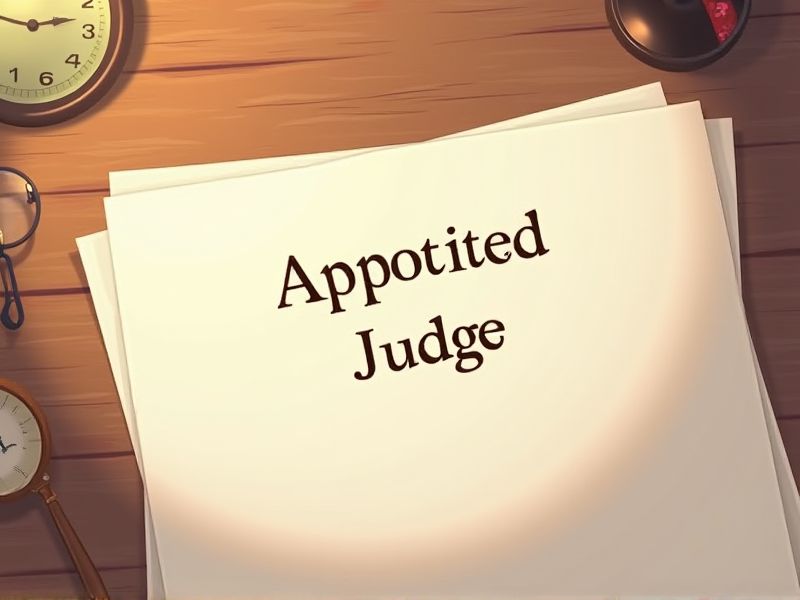
Judges function as pivotal figures in the judicial system, tasked with interpreting laws and ensuring justice. The complexity and scope of legal proceedings demand that judges possess specialized knowledge and skills. Certain certifications ensure judges are well-equipped to handle intricate legal matters with competence. Here are some essential certifications you may need for an Appointed Judge.
Juris Doctor Certification
The Juris Doctor certification equips individuals with the necessary legal knowledge required to make informed judicial decisions. It ensures a standardized level of competence among judges, maintaining the integrity of the legal system. This qualification provides practical experience through coursework and internships, critical for understanding complex legal issues. Without it, the risk of inconsistent rulings and compromised justice increases significantly.
State Bar Admission Certification
The State Bar Admission Certification ensures that an appointed judge possesses a comprehensive understanding of the law, as proven by their legal education and bar exam success. It verifies that the individual adheres to ethical standards set by the legal profession, maintaining public trust in judicial proceedings. The certification is critical because it confirms the judge's legal competency and readiness to interpret and apply the law effectively. The legitimacy of court decisions depends on the credibility of the judicial system, which is reinforced by certifying judges' qualifications.
Judicial Ethics Certification
Judicial ethics certification ensures that appointed judges adhere to a consistent set of moral and ethical standards, promoting public trust in the legal system. Without this certification, judges may exhibit bias or engage in misconduct, potentially undermining the integrity of court rulings. Certification provides a structured framework for judges to navigate complex ethical dilemmas, reducing instances of corruption or unethical behavior. As judges often make decisions impacting lives and societal norms, ensuring their ethical awareness is crucial for maintaining judicial accountability.
Judicial Training and Professional Development Certification
Judicial training and professional development certifications ensure appointed judges stay updated on the latest legal precedents and procedural advancements. These certifications are vital as they enhance judges' decision-making skills, leading to more consistent and fair rulings. Continuous professional development fosters ethical awareness, promoting integrity within the judiciary system. Such training reinforces public confidence in the justice system by maintaining high standards of judicial competence.
Advanced Court Management Certification
Judges often face complex caseloads and intricate legal processes, which demand efficient court management skills. Advanced Court Management Certification provides these judges with specialized training to streamline administrative tasks and improve courtroom efficiency. These certifications ensure that judges can handle resources effectively, leading to a more responsive and transparent judicial system. Without such specialized training, judges might struggle to adapt to evolving judicial needs and technological advancements.
Mediation and Alternative Dispute Resolution Certification
Becoming certified in mediation and alternative dispute resolution (ADR) equips judges with skills to reduce courtroom caseloads efficiently. This certification enhances a judge's ability to facilitate communication and negotiation between disputing parties, often leading to amicable settlements. In scenarios where a trial is unnecessary, ADR techniques can provide a more timely and cost-effective resolution. Judges with this certification can foster a cooperative legal environment, improving satisfaction for all parties involved.
Evidence Law and Procedure Certification
Judges appointed to the bench must possess a deep understanding of evidence law and procedure to ensure fair trials. This certification equips judges with the ability to effectively evaluate the relevance and admissibility of evidence presented in court. Without this expertise, judicial decisions could be based on erroneous or misleading information, potentially leading to unjust outcomes. Such certification instills trust in the legal system by demonstrating a judge's proficiency in upholding legal standards.
Continuing Legal Education (CLE) Certification
Continuing Legal Education (CLE) Certification ensures judges remain updated on evolving laws and legal standards, which impacts the accuracy of their rulings. Jurisdictions often mandate CLE to maintain public trust in the judicial system, as it reflects a commitment to legal proficiency. Participation in CLE programs influences a judge's ability to integrate new technology and methodologies in courtroom procedures. Judicial decisions can be more consistent and fair when judges engage in ongoing education, thus reducing the likelihood of legal errors.
Conflict Resolution Certification
Appointed judges often face complex disputes, and conflict resolution certification provides them with structured methodologies to handle these effectively. This certification equips judges with advanced negotiation and mediation skills, reducing court backlog by fostering settlements outside the courtroom. It reflects a judge's commitment to professional development, enhancing credibility and public trust in judicial proceedings. Knowledge in conflict resolution can lead to fairer outcomes, as judges become adept at understanding underlying issues and interests of involved parties.
Judicial Technology and Case Management Certification
Judicial technology and case management certification is needed for appointed judges to enhance their efficiency in handling a growing volume of cases. Streamlining case management systems helps in reducing court backlog, which directly impacts the timely delivery of justice. Familiarity with advanced technological tools ensures judges can access and utilize data effectively, leading to well-informed decisions. Such certification helps maintain public trust and confidence in the judicial system by ensuring judges are equipped with the latest skills and knowledge.
Summary
You, as a member of the legal community, can anticipate that when an appointed judge earns additional certifications, their decision-making and legal interpretations are often more informed and precise. These certifications typically enhance the judge's understanding of specialized legal areas, leading to more equitable rulings. With advanced qualifications, judges may gain increased respect and credibility, which often fosters greater public trust in the judiciary system. As a result, the overall efficiency and effectiveness of legal proceedings can improve significantly.
